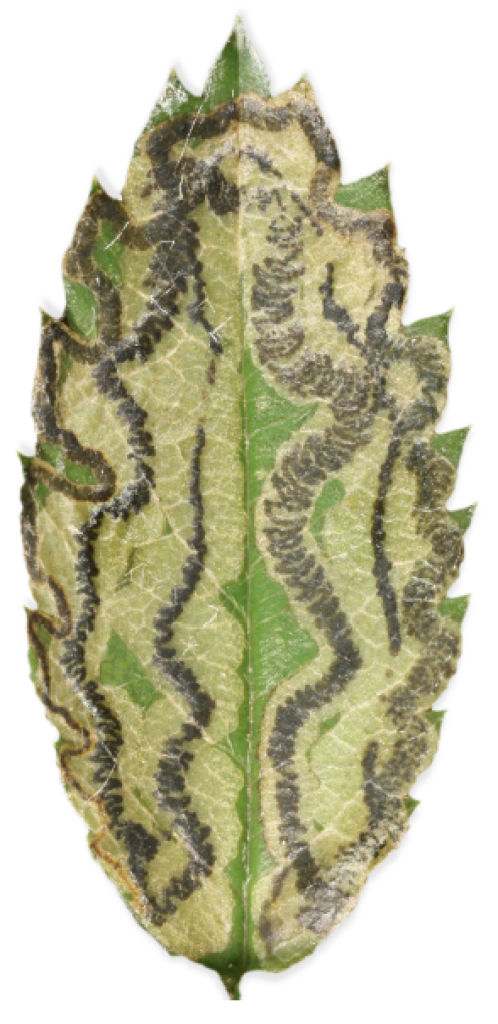Tuesday, October 8th
MCZ 101, 26 Oxford Street, Harvard University
07:30 PM
Life in a leaf: The wonderful world of leafminers
Charley Eiseman
Freelance naturalist and author

Leafminers are insect larvae that spend at least part of their lives feeding between the epidermal layers of leaves. Over 2000 species of moths, flies, beetles, and sawflies are found in North America. Leafminers are usually host-specific, and the mines vary considerably depending on what insect produces it. As a result, it is often possible to identify the responsible insect using only the hostplant and mine characteristics. After eight years of research, traveling throughout the continent, and collecting and rearing thousands of leafminers, Charley has completed a guide to the North American species that includes keys to the mines found on each plant genus. He will introduce the major groups of leafminers, as well as share some new discoveries.
The talk is free and open to the public. The meeting is readily accessible via public transportation. Parking is available in the Oxford Street Garage with advance arrangement, as described here, or (usually but not always) at spaces on nearby streets. Everyone is also welcome to join us for dinner before the talk (beginning at 5:45 PM) at the Cambridge Common, 1667 Mass Ave., Cambridge.
CEC meetings are held the second Tuesday of the month from October through May. The evening schedule typically includes an informal dinner (5:45 to 7:15 PM) followed by our formal meeting (7:30 – 9:00 PM). The latter begins with club business and is followed by a 60-minute entomology related presentation. Membership is open to amateur and professional entomologists.



